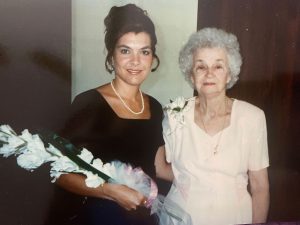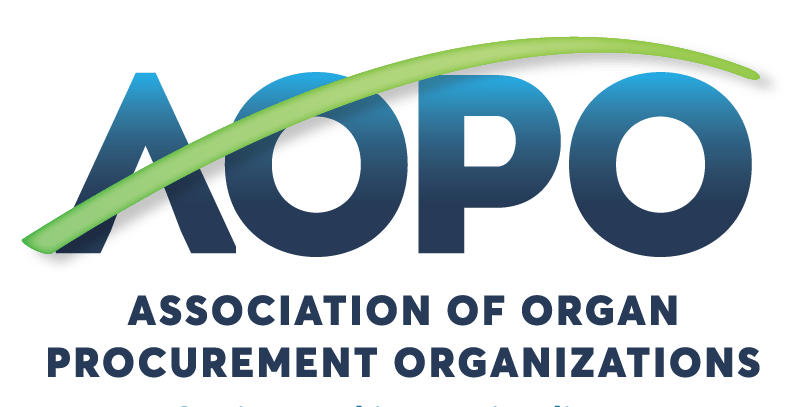Stephanie Williford’s path to becoming an Organ Donation Coordinator (ODC) at HonorBridge is rooted in her empathetic nature and unwavering dedication to helping others. From caring for her grandmother with Alzheimer’s to navigating the complexities of organ donation in a hospital setting, Stephanie’s experiences have shaped her into a compassionate and skilled nurse. In this Q&A, she shares her personal journey, the challenges and rewards of her role, and the impactful stories that continue to drive her passion for saving lives. Join us as we delve into Stephanie’s inspiring career and learn more about the vital work of ODCs.

Can you tell us about your journey to become a registered nurse?
My grandmother had Alzheimer’s, and after a fire destroyed her house in Kentucky, she came to live with my parents. At the time, I was working in South Carolina, but I wanted to come home and spend more time with my grandmother and help care for her, so I did. Eventually, my grandmother stopped eating. We made milkshakes and offered her juice, but she refused to take them. My mom would be like, “ok, if you don’t want them, you don’t have to have them,” but I knew she needed her nutrition. It could take me up to an hour and a half, but I would sit with her until she finished both. I told my mom that it takes patience. So, taking care of my grandmother made me want to be a nurse. I worked at WakeMed in the ER and I put myself through nursing school.
What inspired you to become an ODC?
When I worked at WakeMed Hospital, we had a registered donor. I took care of him for several days, so I had a good rapport with the family. When the family decided to withdraw care, they initially declined organ donation. When HonorBridge informed them of his registered donor status, we had a family meeting. There were about 30 family members present. I sat beside the patient’s mother, who was in her 80s, and held her hand. I said, “I cannot imagine what you are going through. No parent should have to bury their child. But if you knew that he could live on and maybe save two or three peoples’ lives, would that be worth it?” She looked at me and told me that she had never thought of it like that and had only thought about her son being cut up. This perspective changed their decision, and they agreed to organ donation. So that’s how I got interested. Three years later, when a position opened, Steve Edwards, the hospital liaison, encouraged me to apply. I joined HonorBridge six years ago after nearly 18 years at WakeMed.
What are the primary responsibilities of an ODC?
We get referrals and we will do what is called Donation after Circulatory Death (DCD) evaluations. This involves reviewing the patient’s chart, labs, chest x-rays, EKGs, and other tests to assess potential. Once the family chooses organ donation, we manage the case, coordinating with the care team to maximize the donor’s gift. For brain-dead donors, we place orders and work with the team to ensure everything is in place. For DCD, the medical team remains in charge, and we facilitate the process. We also coordinate with the OR, handle logistics, and provide post-mortem care.
Can you describe a typical day in your role?
I am on call for three 16-hour shifts, starting either at 8 am or 5 pm. We have a morning huddle call at 8:15 am to assign tasks and share reports. My territory spans from Boone, NC to the coast and Danville, VA. I contact the nurse on-site, provide my ETA, and answer any questions. Upon arrival, I huddle with the nurse, possibly respiratory therapy, and the medical team to outline the day’s plan. Depending on the situation, we either prepare for the OR, gather blood samples, complete paperwork, or conduct testing. My role involves constant coordination with the care team.
How do you handle the emotional aspects of working with donor families and transplant recipients?
Dr. Nancy Knudsen, Chief Medical Director at HonorBridge, has been amazing in providing support. She checks in with us after difficult cases, offering her assistance. I also have strong relationships with the Family Support Coordinators (FSCs), hospital liaisons, and my fellow ODCs, and we often talk to process our experiences together.
What do you find most rewarding about your work?
As a nurse, I am here to save lives and help others. In the cardiac intensive care unit, I excelled at keeping patients comfortable and helping families cope. The most rewarding aspect of my current role is knowing that, despite the loss, I can be a part of saving up to eight lives through organ donation. When people thank us for our work, it reignites my passion and reminds me of why we do what we do.
How do you ensure that the decisions of the donor and their family are respected throughout the process?
We have FSCs who maintain contact with the family, but I am always there to answer questions and provide timeframes. If a family wishes to be present in the OR during the withdrawal of care, I make sure that the OR staff is aware and then the FSC will lead them in. We also spend time talking with families about their loved ones, offering support, and ensuring they come first.
What are some common misconceptions about organ donation that you encounter, and how do you address them?
A common misconception is the term “harvesting.” We do not harvest organs; we recover them. I explain to families that we are here to save lives, not to “cut up” their loved ones. We hold a moment of honor in the OR with the staff and surgeons, recognizing the donor and the recipients. I think it also helps the families to know that I will be there, in the OR, making sure their loved one is taken care of.
Can you share a story that has had a significant impact on you during your time as an organ donation coordinator?
One story that stands out is about a 2-year-old girl who drowned in a pool. During her Honor Walk, the halls were lined with people all the way to the OR. It was just amazing. Her brother comforted their mother, saying, “Mommy, she’s going to be okay. She’s going to help others and she will be looking out for us.” I just started crying. The girl had this little green dinosaur, and we were told that it had to go with her in the casket. We ensured it did, even coordinating with the medical examiner. The family made bracelets with her name to give out to the hospital staff, and Jeanne Connelly, our hospital liaison, still wears one on her badge clip.
Can you be too old or too sick to be an organ donor?
Technically, no. We work with medical directors to maximize every potential gift, regardless of age or health status. Many people think they’re too sick, but they can often still be donors. There’s no age limit to sign up, and every donor can make a difference.
As a nurse, why would you encourage people to register as organ donors?
As a nurse and a registered donor myself, I believe it is imperative to educate everyone about organ donation because it saves lives. My niece was inspired by my work to register as a donor — when she got her driver’s license, she said, “Aunt Stephanie, look, I have a heart on my license!” My middle child even shared my work with her driver’s ed class, leading to an invitation for me to speak to them about organ donation over Zoom. All of these 15 and 16-year-olds in the chat were like wow, you are a real superhero, helping to save lives. That meant the world. My 16-year-old just got her license today and registered to be a donor. She said, “I don’t need my organs where I’m going, and my heart will always be with you, so I will help.”
More than 100,000 people are waiting for lifesaving organ transplants. Together, we can make a difference. Register your decision here: https://bit.ly/3hmiWKE



